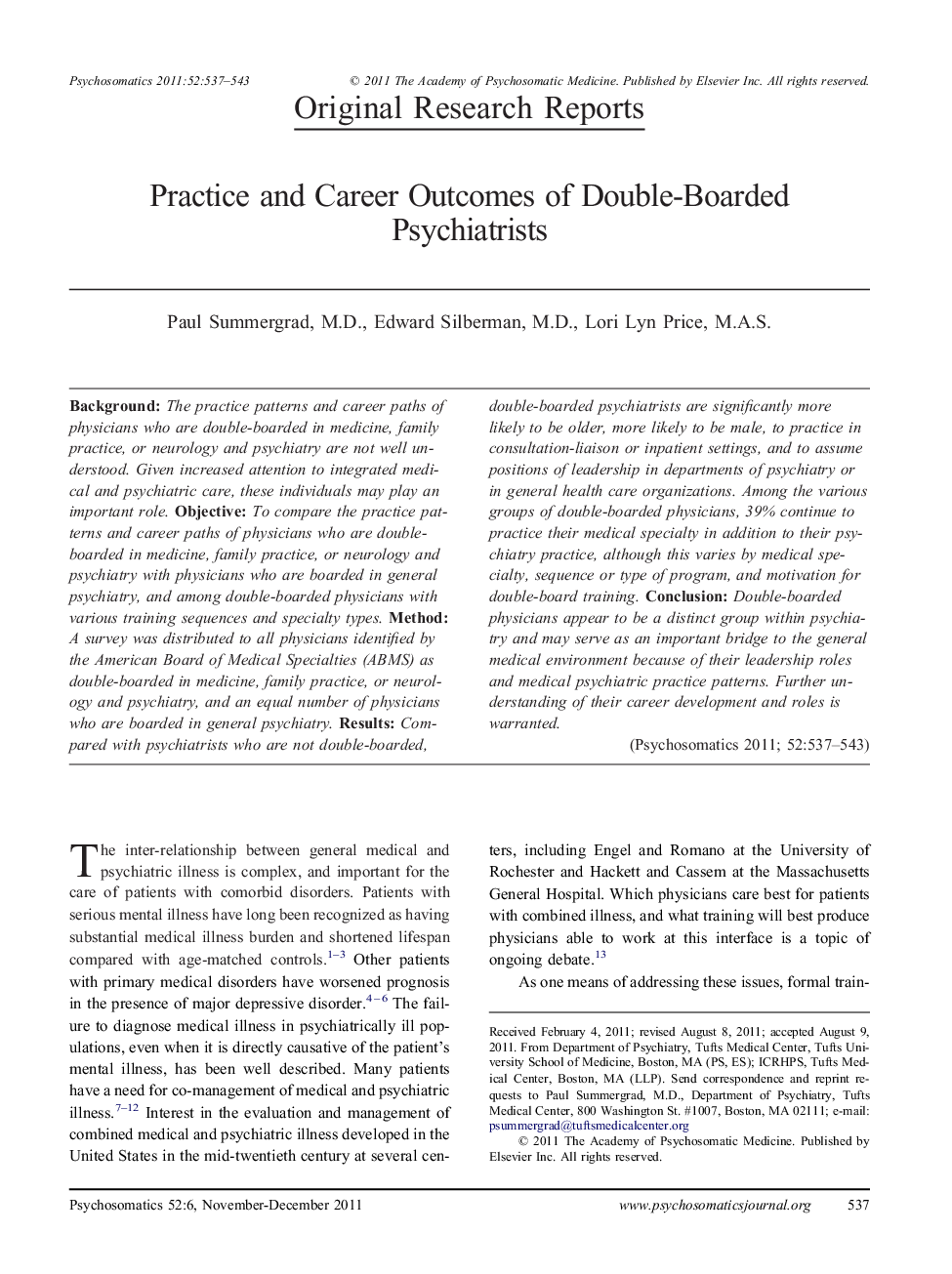| Article ID | Journal | Published Year | Pages | File Type |
|---|---|---|---|---|
| 337893 | Psychosomatics | 2011 | 7 Pages |
BackgroundThe practice patterns and career paths of physicians who are double-boarded in medicine, family practice, or neurology and psychiatry are not well understood. Given increased attention to integrated medical and psychiatric care, these individuals may play an important role.ObjectiveTo compare the practice patterns and career paths of physicians who are double-boarded in medicine, family practice, or neurology and psychiatry with physicians who are boarded in general psychiatry, and among double-boarded physicians with various training sequences and specialty types.MethodA survey was distributed to all physicians identified by the American Board of Medical Specialties (ABMS) as double-boarded in medicine, family practice, or neurology and psychiatry, and an equal number of physicians who are boarded in general psychiatry.ResultsCompared with psychiatrists who are not double-boarded, double-boarded psychiatrists are significantly more likely to be older, more likely to be male, to practice in consultation-liaison or inpatient settings, and to assume positions of leadership in departments of psychiatry or in general health care organizations. Among the various groups of double-boarded physicians, 39% continue to practice their medical specialty in addition to their psychiatry practice, although this varies by medical specialty, sequence or type of program, and motivation for double-board training.ConclusionDouble-boarded physicians appear to be a distinct group within psychiatry and may serve as an important bridge to the general medical environment because of their leadership roles and medical psychiatric practice patterns. Further understanding of their career development and roles is warranted.
